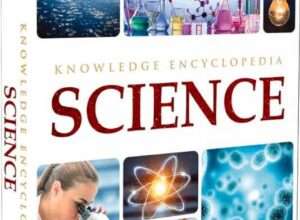“The same bad actors who are calling for racist, homophobic, and transphobic book bans are also calling for climate denial in science textbooks,” said one critic.
 Seven of 12 proposed science textbooks for Texas 8th graders were rejected Friday by the Republican-controlled state Board of Education because they propose solutions to the climate emergency or were published by a company with an environmental, social, and governance policy.
Seven of 12 proposed science textbooks for Texas 8th graders were rejected Friday by the Republican-controlled state Board of Education because they propose solutions to the climate emergency or were published by a company with an environmental, social, and governance policy.
The Texas Tribunereported that the 15-member board, which for the first time was required to include climate education for 8th graders, approved five of 12 proposed science textbooks, but called on their publishers to remove content deemed false or presenting a negative portrayal of oil and gas in the nation’s biggest fossil fuel producer.
“America’s future generations don’t need a leftist agenda brainwashing them in the classroom to hate oil and natural gas,” said Republican state energy regulator Wayne Christian, who had urged the board to choose books that promote planet-heating fossil fuels.
Some board members also objected to textbooks that did not include alternatives to the theory of evolution. One textbook was approved only after the removal of images highlighting that human beings—taxonomically classified as great apes—share ancestry with monkeys.
“Teaching creationism or any of its offshoots, such as intelligent design, in Texas’ public schools is unlawful, because creationism is not based in fact,” Chris Line, an attorney with the Freedom from Religion Foundation, said Friday. “Courts have routinely found that such teachings are religious, despite many new and imaginative labels given to the alternatives.”
“Federal courts consistently reject creationism and its ilk, as well as attempts to suppress the teaching of evolution, in the public schools,” Line added.
State standards approved by the board’s conservative majority in 2021 do not include creationism as an alternative to evolution. The standards also acknowledge that human activities contribute to climate change.
Despite an overwhelming scientific consensus that human activity—primarily, the burning of fossil fuels—drives global heating, Republican board Secretary Patricia Hardy argued before the vote that such a stance amounts to “taking a position that all of that is settled science, and that our extreme weather is caused by climate change.”
One textbook was rejected because its publisher has an environmental, social, and governance (ESG) policy. ESG frameworks account for workplace diversity, the treatment of employees, and preparedness for the climate crisis.
Democratic board member Marisa Perez-Diaz said during debate on the textbooks that “my fear is that we will render ourselves irrelevant moving forward when it comes to what publishers want to work with us and will help us get proper materials in front of our young people, and for me that’s heartbreaking.”
The National Science Teaching Association—a group of 35,000 U.S. science educators—on Thursday implored the board to reject “misguided objections to evolution and climate change [that] impede the adoption of science textbooks in Texas.”
As in other GOP-run states, Texas officials have pushed book bans and other restrictions in schools and libraries, even as they portray themselves as champions of freedom. According to freedom of expression defenders PEN America, only Florida banned more books in schools than Texas during the 2022-23 academic year.
Common Dream’s work is licensed under a Creative Commons Attribution-Share Alike 3.0 License. Feel free to republish and share widely.
[content id=”79272″]




